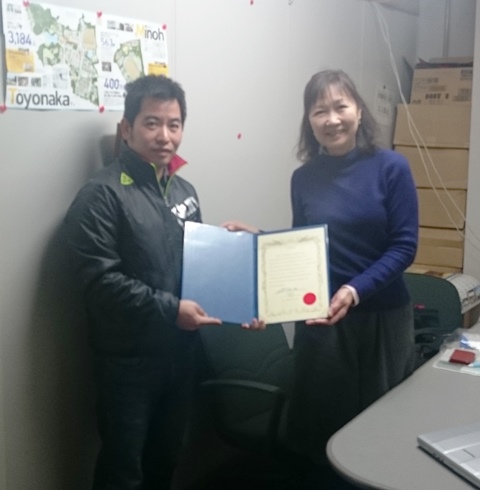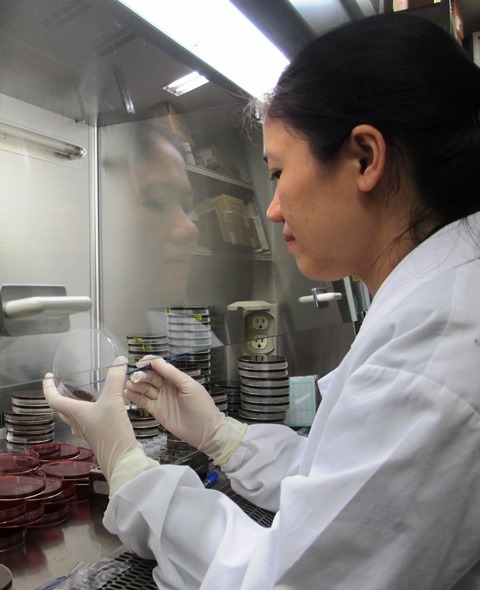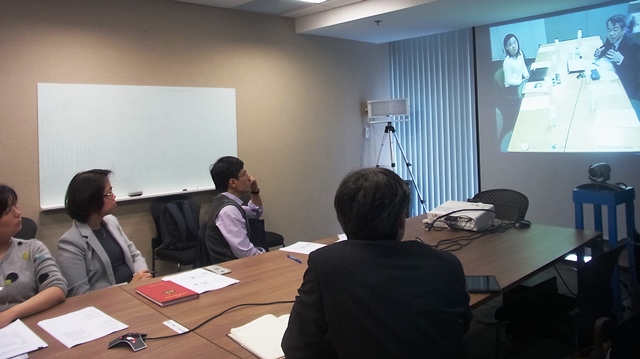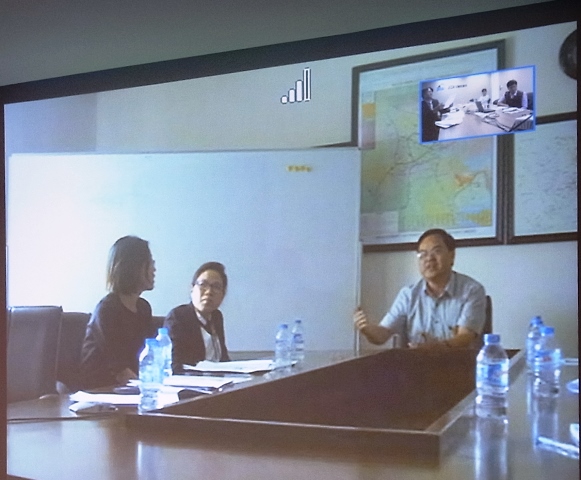Long-term Training Evaluation Meeting
24 Feb. 2017: Two long-term trainees, Mr. Nguyen Van Sy and Ms. Hoang Hoai Phuong, attended the evaluation meeting hosted by JICA to deliver oral presentations of their PhD theses, who are candidates of PhD of Osaka University (OU) and Osaka Prefecture University (OPU). The meeting was via videoconferencing between Vietnam and Japan, including OU, OPU, JICA headquarters, JICA Vietnam in Hanoi and HCMC.
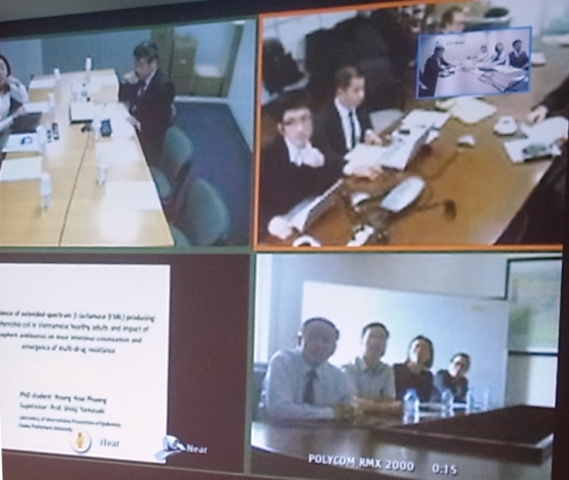
Videoconferencing between Vietnam and Japan
Mr. Sy, who majors in analytical chemistry in OU Graduate School of Pharmaceutical Sciences, has studied detection methods of antibiotic resides in foods/environment, dispatched abroad from National Institute of Nutrition (NIN) in 2014. One of his challenges is to detect beta lactum antibiotics in water because they are easy to decompose in water. To overcome this, he has focused on a degradation product of antibiotics, 2-hydroxy-3-phenylpyrazine(HPP), and developed a detection method of it. In his thesis, because the excessive use and discharge of antibiotics into environment seem to increase antimicrobial resistant (AMR) bacteria in Vietnam, he proposes a monitoring antibiotic residues in foods/environment with a marker of HPP.
Ms. Phuong, who is a microbiologist from Institute of Public Health HCMC (IPH), has studied abroad in OPU Graduate School of Life and Environmental Sciences since 2013. Her interest is on a cause-effect between antibiotic use and resistant mechanisms of AMR bacteria inside guts of animal, developing an experimental mouse model and illuminating a genetic profile. In the first part of her thesis, she studies on characteristics of E.coli from healthy people feces samples in HCMC and a genetic profile of E.coli. As a result, she alarms a threat for public health, showing not only that there are many multi-drug resistant bacteria such as ESBL-producing E.coli, but also that a part of the bacteria has virulence genes associated with diarrheagenic E.coli. From the mouse model result of the second part, she points out that the higher concentration of antibiotics mice take, the more multi-trug resistant or stronger ESBL-producing E.coli inside the mice become. Moreover, she clarifies that one of such causes is the increase of the resistant gene riding on a transposon or a plasmid, which is a mobile DNA molecular easy to transfer from a bacterium to a bacterium. In sum, her thesis provides us with an important scientific evidence that an improper use of antibiotic leads a bacterium highly resistant as well as multi-drug resistant, which suggests a better control of antibiotic use.
After the presentation, their colleagues of NIN and IPH gave active comments and exchanged resolution for the next actions to combat with AMR issues in Vietnam.
